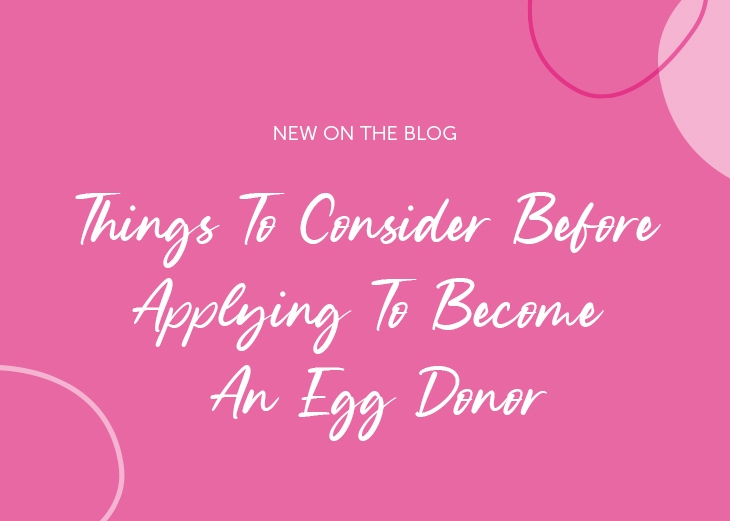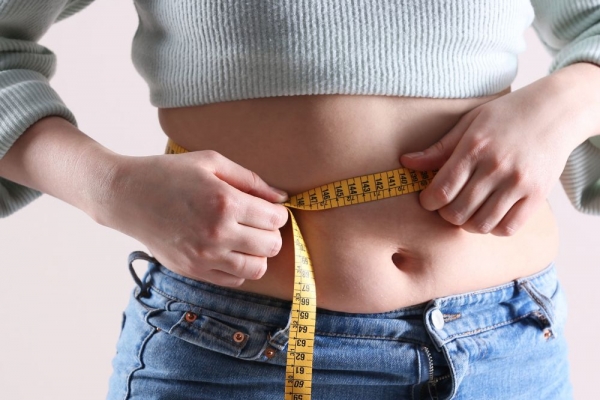This information was correct at the time of publishing. It may not reflect our current practices.

Helping someone to have a family is incredibly rewarding, which is why so many amazing women decide to donate their eggs. But we understand that researching and considering what donation involves is very important before you proceed with egg donation.
It has to be right for you, that way, when you begin your donation journey, you’re fully prepared for each and every stage. What’s more, you’ll be able to recognise the significance and to help you understand, we’ve outlined and explained some consideration points you may have.
Have you researched what egg donation is?
Some women aren’t able to have children without the help of egg donor treatment. This could be because of age, difficulty with ovulation, hereditary conditions or even the medication they’re taking. That’s why they need the help of amazing altruistic women.
It’s a good idea to research articles online where you can discover the commitment and lifestyle changes or maybe you want to learn more about your eggs first? In our blog – ‘What is an egg – an explanation for donors?’ We explain everything from how your eggs are developed to egg quality.
Are you prepared for the egg donation journey?
By knowing about each stage of egg donation, you can prepare for it. From your very first appointment to egg collection it can take up to 3 months. The process takes this amount of time as you will be required to undergo various screening tests, medical history checks and counselling sessions before we can accept you as a donor. Once you're accepted, and you have been registered with the HFEA, it can take up to 3 weeks to stimulate your ovaries using daily injections to produce mature eggs.
Screening tests and medical checkups are a key part of the process. They keep you safe and ensure you’re looked after with the best care throughout your donation journey. These tests also help to determine if you can become an egg donor, as they show if you carry any hereditary conditions that could be passed on. Because of this, we’ll ask if you can access your biological family's medical history, including parents, grandparents, aunts, uncles and siblings.
While hereditary conditions within your family lineage may prove non-harmful and have a limited impact on your life, they can prevent the person who receives your eggs from conceiving a healthy child. Conditions such as Type 1 which could be passed on to the child, and for this reason there are some genetic conditions which mean you may not be able to donate.
We will be by your side from your first contact to guide you through the process and check that you are eligible to donate.
Do you fit the egg donation criteria?
Not having a hereditary condition is just one of the requirements. You must also meet the following criteria:
Remember, even if you don’t meet this criteria, egg donation could be possible further down the line by making some lifestyle changes like giving up smoking.
Are you able to make changes to your lifestyle?
There are things you can do to adjust your lifestyle if you’re thinking about donating in the future, such as regular exercise and healthy eating. Extreme or fad diets are unlikely to achieve long-lasting results. That’s why we advise you to implement realistic steps.
As for smoking, you’ll need to have stopped for at least three months before you can be considered, this includes any e-cigarettes smoked in the last three months that contain nicotine. The NHS has a range of services you can try to help you achieve this goal. You can read our lifestyle blog here for more information on what these lifestyle changes are, if you are thinking about egg donation in the future.
Are you comfortable being identifiable?
Becoming a donor means that when a child turns 18 information is available to the child, which enables them to potentially identify you if they wish. This is because UK law give them the right to know who their donor is. They’ll receive your full name, last known address, and date and town of birth – but this doesn’t mean you’ll have any responsibilities. You won’t be on the birth certificate and you’ll have no financial obligations.
Accepting that this could happen in the future is part of the donation process, but you won’t be alone. Your counselling will cover this topic to make sure you fully understand what this means later on in life, and you’ll be given advance notice from the HFEA before any contact is made.
Ready to change lives?
If you’d like to donate your eggs, or find out more about it, you can get in touch. There’s an incredible need for amazing women like you, and at Manchester Donors, we’d be honoured to walk you through the egg donation journey. Our donors come from all walks of life - all with the same desire to help other women and with something in common - great kindness, empathy, and commitment to giving the gift of life; you can read their incredible stories here.
With over 35 years’ experience of looking after donors, our award-winning clinic is led by medical experts in egg donation. You can call the team on 0161 300 2734, or register your interest on our Manchester Donors website here.
Egg donation has higher and lowers BMI limits – but there's a lot of misunderstanding about why this is the case. To donate eggs, you must have a ...

Start your journey to become an egg donor. Give the gift of life today!